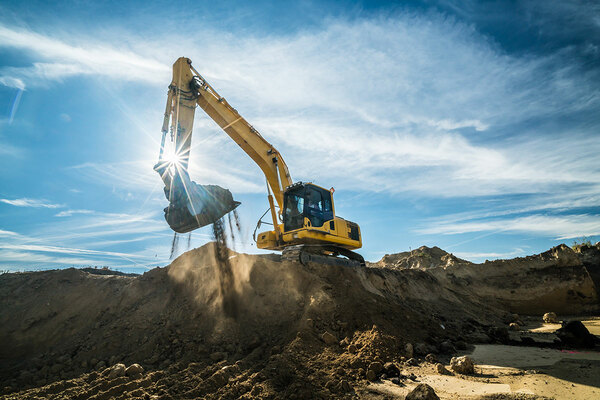The Week in Housing: are the winds of change afoot in housing association development?
A weekly round-up of the most important headlines for housing professionals
It has been a period of flux over the past few years when it comes to housing association development.
Putting the COVID-19 crisis and its impact on construction sites aside for a second, many of the larger developing associations have been hit by other issues that have stymied their ability to build.
The fire safety scandal – and the huge costs incurred by work to make blocks safe – has meant that many organisations have had to make tough decisions on how they will find that money. Development funds are often the victims. Similar decisions on decarbonisation costs are also having to be made, with that money again coming from the development pot.
And this is not forgetting the stagnating house sale market, particularly in London, which is largely a result of Brexit concerns and which has left many associations with unsold homes and hit the cross-subsidy model to its core.
So, associations are having to think creatively about new ways to build. Today, Inside Housing revealed one of those solutions that could change the face of housing association delivery for years to come.
We revealed that housing associations are increasingly looking to develop homes in partnership with for-profit providers, in a move that could see associations own fewer of the properties they build.
It follows a deal between Hyde and investment giant M&G, in which the latter will forward fund a £500m pipeline of around 2,000 shared ownership homes. Hyde will build the homes and manage them when they are completed, but it will not own them.
And it seems this will not be the last such deal – there does seem to be appetite in the sector. Guy Slocombe, chief investment officer at Hyde, told Inside Housing that his phone “hasn’t stopped ringing” since the deal was announced, and Savills has said it is starting to see housing associations looking to use third-party capital for their development programmes.
Expect more deals like this in the coming months, and well beyond that.
Elsewhere, Inside Housing published a significant piece that was the result of weeks of shoe-leather journalism from its news team. The government’s ‘naming and shaming’ of freeholders yet to remove Grenfell-style cladding from buildings involves publishing a list of names on its monthly building safety data update. Many of these buildings do not have recognisable names or are offshore companies, so there is very little risk of reputational damage in appearing on the list.
But Inside Housing’s piece digs into who these companies actually are, revealing the key players behind them and why, four years after Grenfell, the aluminium composite material (ACM) cladding has not been removed from their blocks. It is well worth a read.
Another big story of the week was the news that housing association Peabody had been criticised by tenants and campaigners after huge costs for a new low-carbon heating system left some having to move temporarily out of their homes.
Peabody tenants living on the Phoenix Works Estate in east London were forced to pay up to £250 per month for heating after moving into their new build homes, due to the building using a heat network, which is a form of heating whereby heat is produced centrally and distributed to different households via pipes.
Peabody did say in response that it was not responsible for the metering or billing but that it had always worked to get the best deal for its residents. However, Fuel Poverty Action Group has said this is a much wider issue, and there could be many more housing association leaseholders facing similar issues.
There was also the news that Rydon, the contractor that led the refurbishment of Grenfell Tower, had sold off a number of its construction businesses to a company set up to deliver new housing schemes across Southern England. The new company, which was set up by experienced construction boss Paul Nicholls, has taken over nearly a dozen of Rydon’s projects, as well as its stake in two development joint ventures. The move was met with ire from Grenfell United.
And finally, Places for People, one of the country’s largest associations, is going to say goodbye to its chief executive David Cowans next year. Mr Cowans announced that he would step down in March 2022 after a whopping 24 years in the post.
Jack Simpson, news editor
Editor’s picks: five must-read stories
- Named and shamed: who are the landlords yet to start the removal of Grenfell-style cladding from their buildings?
- Housing associations increasingly looking to partner with for-profits to develop new homes
- Housing Ombudsman to investigate damp and mould problems in sector
- Grenfell contractor sells regional construction businesses to newly formed company
- One in 12 private renters served ‘no fault’ eviction notice during pandemic, survey finds
Sign up for our Week in Housing newsletter
Already have an account? Click here to manage your newsletters




